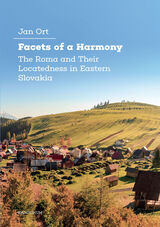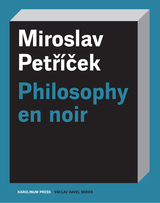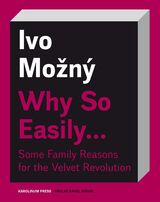5 books about Jones, Phil

The Economic Rise of the Czech Lands 1
From the 1750s to the End of World War I
Edited by Zdenek Jindra and Ivan Jakubec
Karolinum Press, 2019
This first of a two-part examination of the economic development of the Czech lands deals with the period from the mid-eighteenth century (the accession of Maria Theresa to the Austrian throne) to the end of the World War I. In this key period of industrialization, economic, social, political, legal, and cultural changes intersected. Featuring chapters by leading Czech experts in the economic development and social history of the Czech lands, this broad study explores the multifaceted conditions and outcomes of modernization in Central Europe—from social development to industry, agriculture, banking, transport, and infrastructure—as well as offers valuable comparisons with relevant regions of the Habsburg Empire and Western Europe. Also included are an extensive bibliography and indexes and charts of the Austro-Hungarian monarchy, the scope of the authority of the chambers of trade and industry, the development of leading engineering companies, and various maps, including of the Czech railway network.
[more]

Facets of a Harmony
The Roma and Their Locatedness in Eastern Slovakia
Jan Ort
Karolinum Press, 2022
A crucial contribution to Romani studies focuses on a single Slovak village to explore universal issues of belonging.
In this important contribution to contemporary Romani studies, Jan Ort focuses his anthropological research on a village in eastern Slovakia reputed for the ostensibly seamless coexistence of its ethnically and linguistically heterogeneous inhabitants. Ort offers an ethnographic critique of this idyllic view, showing how historical shifts, as well as the naturalization of inequality and hierarchies, have led to the present situation between the village’s Roma inhabitants and other ethnic populations. However, he also shows examples and methods of subversion and resistance to the village’s current power dynamics. Based primarily on participant observation within Roma families, Ort’s long-term research results in a fascinating book replete with ethnographic descriptions that allow readers to understand local experiences, contexts, and divisions. These insights about the village lead to the key question of the book: Who actually is a local?
In this important contribution to contemporary Romani studies, Jan Ort focuses his anthropological research on a village in eastern Slovakia reputed for the ostensibly seamless coexistence of its ethnically and linguistically heterogeneous inhabitants. Ort offers an ethnographic critique of this idyllic view, showing how historical shifts, as well as the naturalization of inequality and hierarchies, have led to the present situation between the village’s Roma inhabitants and other ethnic populations. However, he also shows examples and methods of subversion and resistance to the village’s current power dynamics. Based primarily on participant observation within Roma families, Ort’s long-term research results in a fascinating book replete with ethnographic descriptions that allow readers to understand local experiences, contexts, and divisions. These insights about the village lead to the key question of the book: Who actually is a local?
[more]

Philosophy en noir
Miroslav Petrícek
Karolinum Press, 2020
Thought necessarily reflects the times. Following the tragedy of the Holocaust, this fact became ever more clear. And it may be the reason postwar philosophical texts are so difficult to understand, since they confront incomprehensibly traumatic experiences. In this first English-language translation of any of his books, Miroslav Petříček—one of the most influential and erudite Czech philosophers, and a student of Jan Patočka—argues that to exist in the second half of the twentieth century and beyond, Western philosophy has had to rewrite its tradition and its discourse, radically transforming itself. Should philosophy be capable of bearing witness to the time, Petříček contends, this metamorphosis in philosophy is necessary. Offering an original Central European perspective on postwar philosophical discourse that reflects upon the historical underpinnings of pop culture phenomena and complex philosophical schools—including Adorno, Agamben, Benjamin, Derrida, Husserl, Kracauer, and many others—Philosophy en noir is a record of this transformation.
[more]

The Soviet Army and Czechoslovak Society 1968–1991
Marie Cerná
Karolinum Press, 2024
Analyzes the historical significance of the Soviet invasion of Czechoslovakia.
This book addresses different aspects of the Soviet army’s twenty-year presence in Czechoslovakia between 1968 and 1991. It explores the circumstances of the Soviet settling in the country, immediately related to the invasion of the Warsaw Pact armies in August 1968; its active interference in the political developments in the early stage of the “normalization” era; and the universal support provided by the normalization era regime. It examines the darker side of this support when the constant favoring of Soviet interests—often to the detriment of the local population and the environment—went hand in hand with the resignation of the Czechoslovak state to lawfulness and the execution of effective administration on its territory.
Based on extensive local and national primary sources, the volume describes the often problematic coexistence of the Soviet garrisons and local inhabitants, who did not have sufficient protection at the central level. In this context, it points out the contradictory logic that framed the mutual coexistence: the official policy of friendship on the one hand and the counter-intelligence protection of Soviet military premises on the other. Marie Cerná records the traces that the presence of the Soviet army left in the collective memory and examines the circumstances of its departure from the country in 1990 and 1991, which began immediately after the change of the political regime. She presents the long-term presence of the Soviet army as a fundamentally political and politicized matter, which was first the subject of power controversies and later of propaganda and intentional manipulation.
This book addresses different aspects of the Soviet army’s twenty-year presence in Czechoslovakia between 1968 and 1991. It explores the circumstances of the Soviet settling in the country, immediately related to the invasion of the Warsaw Pact armies in August 1968; its active interference in the political developments in the early stage of the “normalization” era; and the universal support provided by the normalization era regime. It examines the darker side of this support when the constant favoring of Soviet interests—often to the detriment of the local population and the environment—went hand in hand with the resignation of the Czechoslovak state to lawfulness and the execution of effective administration on its territory.
Based on extensive local and national primary sources, the volume describes the often problematic coexistence of the Soviet garrisons and local inhabitants, who did not have sufficient protection at the central level. In this context, it points out the contradictory logic that framed the mutual coexistence: the official policy of friendship on the one hand and the counter-intelligence protection of Soviet military premises on the other. Marie Cerná records the traces that the presence of the Soviet army left in the collective memory and examines the circumstances of its departure from the country in 1990 and 1991, which began immediately after the change of the political regime. She presents the long-term presence of the Soviet army as a fundamentally political and politicized matter, which was first the subject of power controversies and later of propaganda and intentional manipulation.
[more]

Why So Easily . . . Some Family Reasons for the Velvet Revolution
A Sociological Essay
Ivo Možný
Karolinum Press, 2023
A famed essay examines the Velvet Revolution from a sociological perspective.
Thirty-two years after its initial publication, this respected sociological essay, written in the history-making years of 1989 and 1990, is available for the first time in English. The essay tells the story of a despotic Socialist state expropriating the family (and with it the private sphere of life) only to be colonized by the very thing it expropriated forty years later. The essay plunges the reader into the pivotal time of the Velvet Revolution and provides valid explanations for the grassroots causes of the old regime’s downfall, examining the private aspirations and strategies of highly disparate groups of nameless social actors of the old regime that eventually sapped almost everyone of any interest in keeping the regime afloat.
Thirty-two years after its initial publication, this respected sociological essay, written in the history-making years of 1989 and 1990, is available for the first time in English. The essay tells the story of a despotic Socialist state expropriating the family (and with it the private sphere of life) only to be colonized by the very thing it expropriated forty years later. The essay plunges the reader into the pivotal time of the Velvet Revolution and provides valid explanations for the grassroots causes of the old regime’s downfall, examining the private aspirations and strategies of highly disparate groups of nameless social actors of the old regime that eventually sapped almost everyone of any interest in keeping the regime afloat.
[more]
READERS
Browse our collection.
PUBLISHERS
See BiblioVault's publisher services.
STUDENT SERVICES
Files for college accessibility offices.
UChicago Accessibility Resources
home | accessibility | search | about | contact us
BiblioVault ® 2001 - 2024
The University of Chicago Press









